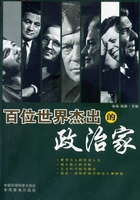"The Origin of Species" had not long been published when the parallelism of development in natural species and in languages struck investigators. At the time, one of the foremost German philologists was August Schleicher, Professor at Jena. He was himself keenly interested in the natural sciences, and amongst his colleagues was Ernst Haeckel, the protagonist in Germany of the Darwinian theory. How the new ideas struck Schleicher may be seen from the following sentences by his colleague Haeckel. "Speech is a physiological function of the human organism, and has been developed simultaneously with its organs, the larynx and tongue, and with the functions of the brain. Hence it will be quite natural to find in the evolution and classification of languages the same features as in the evolution and classification of organic species. The various groups of languages that are distinguished in philology as primitive, fundamental, parent, and daughter languages, dialects, etc., correspond entirely in their development to the different categories which we classify in zoology and botany as stems, classes, orders, families, genera, species and varieties. The relation of these groups, partly coordinate and partly subordinate, in the general scheme is just the same in both cases; and the evolution follows the same lines in both." (Haeckel, "The Evolution of Man", page 485, London, 1905. This represents Schleicher's own words: Was die Naturforscher als Gattung bezeichnen wurden, heisst bei den Glottikern Sprachstamm, auch Sprachsippe; naher verwandte Gattungen bezeichnen sie wohl auch als Sprachfamilien einer Sippe oder eines Sprachstammes...Die Arten einer Gattung nennen wir Sprachen eines Stammes; die Unterarten einer Art sind bei uns die Dialekte oder Mundarten einer Sprache; den Varietaten und Spielarten entsprechen die Untermundarten oder Nebenmundarten und endlich den einzelnen Individuen die Sprechweise der einzelnen die Sprachen redenden Menschen. "Die Darwinische Theorie und die Sprachwissenschaft", Weimar, 1863, page 12 f. Darwin makes a more cautious statement about the classification of languages in "The Origin of Species", page 578, (Popular Edition, 1900).) These views were set forth in an open letter addressed to Haeckel in 1863 by Schleicher entitled, "The Darwinian theory and the science of language". Unfortunately Schleicher's views went a good deal farther than is indicated in the extract given above. He appended to the pamphlet a genealogical tree of the Indo-Germanic languages which, though to a large extent confirmed by later research, by the dichotomy of each branch into two other branches, led the unwary reader to suppose their phylogeny (to use Professor Haeckel's term) was more regular than our evidence warrants.
Without qualification Schleicher declared languages to be "natural organisms which originated unconditioned by the human will, developed according to definite laws, grow old and die; they also are characterised by that series of phenomena which we designate by the term 'Life.'
Consequently Glottic, the science of language, is a natural science; its method is in general the same as that of the other natural sciences."("Die Darwinische Theorie", page 6 f.) In accordance with this view he declared (op. cit. page 23.) that the root in language might be compared with the simple cell in physiology, the linguistic simple cell or root being as yet not differentiated into special organs for the function of noun, verb, etc.
In this probably all recent philologists admit that Schleicher went too far. One of the most fertile theories in the modern science of language originated with him, and was further developed by his pupil, August Leskien ("Die Declination im Slavisch-litanischen und Germanischen", Leipzig, 1876;Osthoff and Brugmann, "Morphologische Untersuchungen", I. (Introduction), 1878. The general principles of this school were formulated (1880) in a fuller form in H. Paul's "Prinzipien der Sprachgeschichte", Halle (3rd edition, 1898). Paul and Wundt (in his "Volkerpsychologie") deal largely with the same matter, but begin their investigations from different points of view, Paul being a philologist with leanings to philosophy and Wundt a philosopher interested in language.), and by Leskien's colleagues and friends, Brugmann and Osthoff. This was the principle that phonetic laws have no exceptions. Under the influence of this generalisation much greater precision in etymology was insisted upon, and a new and remarkably active period in the study of language began. Stated broadly in the fashion given above the principle is not true. A more accurate statement would be that an original sound is represented in a given dialect at a given time and in a given environment only in one way; provided that the development of the original sound into its representation in the given dialect has not been influenced by the working of analogy.
It is this proviso that is most important for the characterisation of the science of language. As I have said elsewhere, it is at this point that this science parts company with the natural sciences. "If the chemist compounds two pure simple elements, there can be but one result, and no power of the chemist can prevent it. But the minds of men do act upon the sounds which they produce. The result is that, when this happens, the phonetic law which would have acted in the case is stopped, and this particular form enters on the same course of development as other forms to which it does not belong." (P. Giles, "Short Manual of Comparative Philology", 2nd edition, page 57, London, 1901.)Schleicher was wrong in defining a language to be an organism in the sense in which a living being is an organism. Regarded physiologically, language is a function or potentiality of certain human organs; regarded from the point of view of the community it is of the nature of an institution.
(This view of language is worked out at some length by Prof. W.D. Whitney in an article in the "Contemporary Review" for 1875, page 713 ff. This article forms part of a controversy with Max Muller, which is partly concerned with Darwin's views on language. He criticises Schleicher's views severely in his "Oriental and Linguistic Studies", page 298 ff., New York, 1873. In this volume will be found criticisms of various other views mentioned in this essay.) More than most influences it conduces to the binding together of the elements that form a state. That geographical or other causes may effectively counteract the influence of identity of language is obvious. One need only read the history of ancient Greece, or observe the existing political separation of Germany and Austria, of Great Britain and the United States of America. But however analogous to an organism, language is not an organism. In a less degree Schleicher, by defining languages as such, committed the same mistake which Bluntschli made regarding the State, and which led him to declare that the State is by nature masculine and the Church feminine. (Bluntschli, "Theory of the State", page 24, Second English Edition, Oxford, 1892.) The views of Schleicher were to some extent injurious to the proper methods of linguistic study. But this misfortune was much more than fully compensated by the inspiration which his ideas, collected and modified by his disciples, had upon the science. In spite of the difference which the psychological element represented by analogy makes between the science of language and the natural sciences, we are entitled to say of it as Schleicher said of Darwin's theory of the origin of species, "it depends upon observation, and is essentially an attempt at a history of development."Other questions there are in connection with language and evolution which require investigation--the survival of one amongst several competing words (e.g. why German keeps only as a high poetic word "ross", which is identical in origin with the English work-a-day "horse", and replaces it by "pferd", whose congener the English "palfrey" is almost confined to poetry and romance), the persistence of evolution till it becomes revolution in languages like English or Persian which have practically ceased to be inflectional languages, and many other problems. Into these Darwin did not enter, and they require a fuller investigation than is possible within the limits of the present paper.














